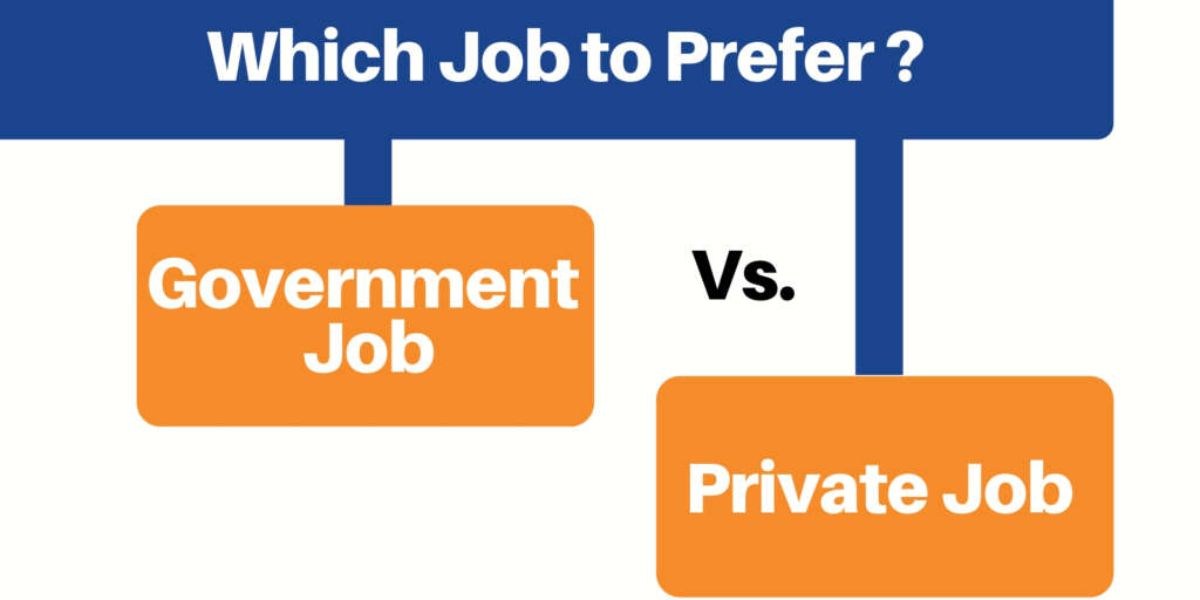For decades, the debate between Public Sector Undertaking (PSU) jobs and private sector jobs has remained one of the most discussed career dilemmas among Indian professionals. While PSU jobs are known for their stability, benefits, and work-life balance, private sector roles often promise faster career growth, higher salaries, and exposure to innovation. Choosing between the two largely depends on one’s personal goals, values, and long-term career vision. Let’s break down the major differences between PSU and private sector jobs to help you make an informed decision.
Understanding PSU Jobs and Their Appeal
Public Sector Undertakings are government-owned corporations or enterprises that operate under partial or complete state control. Examples include ONGC, BHEL, SBI, and NTPC. These organizations offer employment opportunities through competitive exams such as GATE, IBPS, and UPSC, ensuring a transparent selection process.
Table of Contents
Key Advantages of PSU Jobs
- Job Security:
One of the strongest advantages of PSU jobs is long-term stability. Unlike many private sector positions, PSU jobs are less likely to be affected by market fluctuations or layoffs. Once recruited, employees enjoy consistent job security throughout their careers. - Work-Life Balance:
PSU jobs typically offer fixed working hours, limited overtime, and generous leave policies, ensuring better work-life balance. This is a major draw for professionals who prioritize family time or personal commitments. - Attractive Perks and Benefits:
PSU employees receive numerous benefits, including provident fund (PF), gratuity, medical coverage, housing allowances, and pension schemes. These perks contribute to long-term financial stability and security. - Social Respect and Public Service:
Working for a PSU often comes with a sense of pride and social recognition. Employees contribute directly to the country’s economic development, infrastructure, and public welfare. - Training and Development:
Many PSUs provide structured training programs for skill development, leadership enhancement, and technical expertise, helping employees grow professionally within the system.
Private Sector Jobs: The Fast-Paced Career Option
The private sector includes multinational corporations (MNCs), startups, and domestic companies that function independently of government control. These organizations are known for innovation, performance-driven rewards, and dynamic work environments.
Key Advantages of Private Sector Jobs
- Higher Salary Potential:
Private companies often offer higher initial salaries and performance-based incentives. High-performing professionals can expect rapid promotions and financial rewards. - Career Growth Opportunities:
The private sector rewards efficiency, creativity, and results. Career progression is faster for individuals who demonstrate initiative and adaptability. - Exposure to Innovation and Global Practices:
Private firms are often at the forefront of technology and global business trends. Working in such environments exposes employees to new systems, tools, and international markets. - Skill-Based Recognition:
Unlike the seniority-based structure in PSUs, private sector companies emphasize merit and skill. This allows ambitious professionals to climb the corporate ladder based purely on performance. - Flexibility and Global Mobility:
Private companies offer greater flexibility in roles, locations, and work arrangements, including remote work opportunities. Professionals can explore different industries or even work abroad.
Key Differences Between PSU and Private Sector Jobs
| Aspect | PSU Jobs | Private Sector Jobs |
|---|---|---|
| Job Security | High | Moderate |
| Salary Growth | Steady and structured | Rapid, performance-based |
| Work Environment | Formal and rule-based | Dynamic and flexible |
| Career Growth | Slow but stable | Fast-paced and competitive |
| Work-Life Balance | Excellent | Variable, often demanding |
| Learning Opportunities | Limited to structured training | Continuous, skill-based learning |
| Retirement Benefits | Strong (pension, PF, gratuity) | Limited (depends on employer) |
Choosing the Right Path for You
Deciding between PSU and private sector jobs depends on individual priorities and career aspirations.
You Should Choose a PSU Job If:
- You value job security, stability, and a long-term career.
- You prefer a structured environment with defined hierarchies.
- You want a balanced lifestyle with predictable work hours.
- You seek financial security through benefits like pensions and government-backed allowances.
You Should Choose a Private Sector Job If:
- You thrive in competitive environments with performance-based rewards.
- You want rapid career advancement and global exposure.
- You’re comfortable with risk-taking and adapting to fast-changing roles.
- You prioritize innovation, growth, and skill development.
Emerging Trends: The Blending of Both Worlds
In recent years, the line between PSU and private jobs has begun to blur. Several PSUs are modernizing their operations and introducing digital transformation programs, while private companies are focusing more on employee well-being and job security. Additionally, initiatives like Public-Private Partnerships (PPP) are creating hybrid opportunities that offer the best of both worlds—government-backed stability with private-sector efficiency.
Conclusion: Aligning Your Career with Your Values
Ultimately, the decision between PSU and private sector employment is personal. Both sectors offer distinct advantages and challenges. PSU jobs provide stability, security, and purpose-driven work, while private sector roles promise faster growth, innovation, and global exposure. The best path depends on your career goals, risk appetite, and lifestyle preferences.
Before making your choice, assess what truly motivates you—stability or growth, comfort or challenge, structure or creativity. Once you’re clear on your priorities, you’ll be better positioned to choose a career that aligns with your long-term aspirations.
Looking to stay updated on PSU career opportunities, recruitment drives, and sector trends? Visit IndiaPublicSector.com for insights, guides, and the latest news from India’s public sector landscape.









